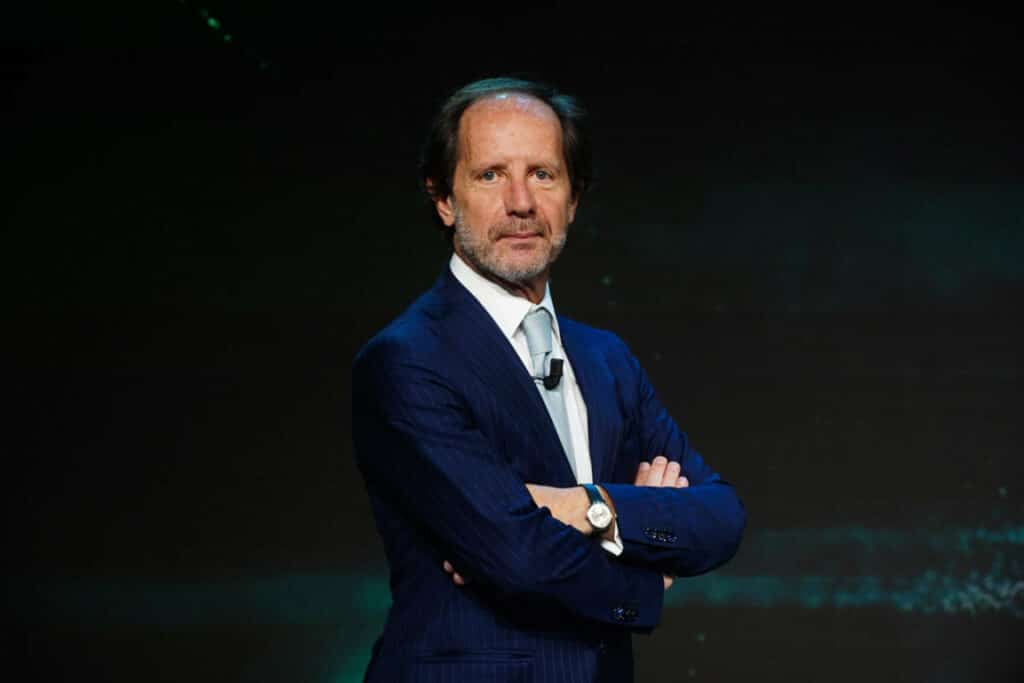Fabio Pompei, managing director of Deloitte Italia, in Il Sole 24 Ore urged Italian institutions and companies to include the risks associated with Climate Change in their long-term strategies and increase their efforts to achieve the objectives of reducing emissions
The CEO of Deloitte Italia, Fabio Pompei, signed an intervention in Il Sole 24 Ore that indicates how much Climate Change is a decisive issue that must also see companies at the forefront.
Here it is for you “It is unequivocal that the influence of human action has led to the warming of the atmosphere, the oceans and the Earth.”
The alarm launched in mid-August by the IPCC (Intergovernmental Group for Climate Change), the world’s leading scientific authority on climate, leaves no room for doubt with the report Climate Change 2021: the Physical Science Basis.
The study clearly states that climate change is destined to intensify. All over the planet, therefore, we must prepare for the increase in the probability of extreme events related to the phenomenon. A call for action for political leaders who will meet in the autumn during COP26 (United Nations Conference on Climate Change), but also for businesses.

Looking at the results of the Naples G20 Summit on the environment, it is clear that finding a political agreement will be very difficult. And it is equally clear that world public opinion is increasingly aware of what is happening.
The signals of the planet
Because, beyond the reports and studies, in more and more places on the planet, local communities are beginning to experience the effects of climate change closely.
Because, beyond the reports and studies, in more and more places on the planet, local communities are beginning to experience the effects of climate change closely.
During this summer alone, for example, in Germany what has already gone down in history as the Flood of the Century caused about 200 deaths and over 6 billion in damage. China has experienced record rainfall and unprecedented sandstorms.
In Canada and North America, an unprecedented heat wave has claimed the lives of hundreds of people. And it was precisely the high temperatures that fueled the numerous and devastating fires that have occurred in various parts of the world, including the USA, Turkey, Greece and Italy, where over 158 thousand hectares of woods and forests have gone up in smoke. as emerged Wednesday from the European Forest Fire Information System (Effis) of the European Commission, constant monitoring that sees a fifth of the national territory at high risk of desertification. In this context, not only politicians, but also businesses must begin to act bearing in mind the alarm raised by the IPCC.
A commitment that Deloitte has made on a global level for some time and will continue with ever more determination. For example, Deloitte’s initiative in collaboration with the World Economic Forum for the creation of universal ESG standards goes in this direction. An initiative aimed at defining comparable and transparent data to measure business resilience and progress on environmental, social and governance issues. This commitment is not only required of large companies.

The hour of sustainability has also come for our economic fabric, made up above all of small and medium-sized enterprises. On the one hand, they will be asked to improve the sustainability of processes and products: this will be required by increasingly stringent regulations, but also by the new sensitivity of consumers – as emerges from our Millennial & GenZ survey, according to which for the very young of Gen Z (1995- 2003) that for climate change and the protection of the planet ranks first among all concerns on major issues.
On the other hand, these companies will also have to learn to integrate risk assessment plans related to climate change into their business models. Because, as well described in the latest report of the Euro-Mediterranean Center on Climate Change, “the costs of the impacts of climate change in Italy increase rapidly and exponentially with increasing temperatures in the various scenarios: from 0.5% of GDP per you understand today, it could reach 7-8% at the end of the century in the worst scenario ».
A clear warning that we must push us to invest more in energy efficiency, in the country’s infrastructures, in agriculture – which thanks to technological innovation could avoid the otherwise devastating impact of climate change – and in tourism, which risks being severely affected by the threat of extreme weather events.
Deloitte’s commitment
Like other large companies, Deloitte is also accelerating to update the policies that will allow us to reduce the environmental impact, as part of the broader WorldClimate strategy with which we want to achieve the goal of net zero emissions by 2030.
Like other large companies, Deloitte is also accelerating to update the policies that will allow us to reduce the environmental impact, as part of the broader WorldClimate strategy with which we want to achieve the goal of net zero emissions by 2030.
In addition to this, at the beginning of August we launched the new climate “learning” program aimed at all our 330,000 professionals worldwide, ready to start in the coming months. This program, developed in collaboration with the WWF, was designed to make our people – and consequently our stakeholders and customers – aware of and take action on the impact of climate change.
So I make my own the words of our Ceo Global, Punit Renjen: to face climate change it is necessary to understand them. For this reason, the first major company in the world, we have decided to commit ourselves to an internal literacy program aimed at all our people on the subject of climate change, also aimed at giving everyone the basis to understand how to contribute positively to this challenge – both in professional and personal life.
And we hope to be just the first example of a widespread trend within companies and institutions. Because, as always, culture and knowledge are essential to gain awareness and only with the awareness and commitment of all will we be able to rise to the challenge we face.
Sustainability in the Hospitality sector
How does the world of hospitality react to the problem? What are the actions undertaken by the main Italian and international groups?
How does the world of hospitality react to the problem? What are the actions undertaken by the main Italian and international groups?
HotelmyPassion recounts some virtuous examples in the dedicated section. All to follow.







No comment yet, add your voice below!